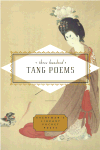 Calendrically speaking, 'tis Spring, or thereabouts. Not so much, here. The rains came, as they do, and the wind. But just today I watched the sun shine through snow for a bit. Brave little primroses line the walk, and the apple tree is blushing, but...
Calendrically speaking, 'tis Spring, or thereabouts. Not so much, here. The rains came, as they do, and the wind. But just today I watched the sun shine through snow for a bit. Brave little primroses line the walk, and the apple tree is blushing, but...We are not gardeners in this house. Ours is not an a cultivated view. We have a yardman fitfully in, to plant new things and see to the weeds, to pull up the things we've killed and make discreetly away with the corpses. A. is a city boy. He believes flowers should happen. He is willing to see that they do for an inappropriate fee, but even retired, he is more manager than gardener and expects his plants to perform or go. He can't abide "mess." Spring is thus always something of a surprise at our house; barren on Sunday, bright by Monday, weather be damned. The cyclamen may be new, but it's here. Just can't see it for the pelting storm. I was raised where gardening was a matter of potatoes, trees transplanted from coffee-cans, work and canning. I'll have none of it, now that I'm grown, though I glad to see something pretty A. has caused to be planted by the door or through the bedroom window, though it's too cold today not keep the curtains drawn.
I tell the seasons in books. Winter is not dead until the first fruit and flower of the Spring Catalogues appear in the bookstore. It doesn't much matter what's going on out-of-doors. Out-of-doors is where I'm forced to smoke. Spring for me came with three new additions to the Everyman's Library Pocket Poets, a series I celebrated in an earlier post. The price has regrettably gone up, but not by much, to just thirteen-fifty a volume. And only one of the latest three, all anthologies, would ever have occurred to me as likely, but I trust the series and so have brought home today:

Three Hundred Tang Poems, newly translated and edited by Peter Harris, and organized in such a way that I need know nothing of the originals to read out of order as I choose, and find a title that very much appeals tonight, The Cold Food Festival, by one Han Hong, in which "It's spring in the city and there's nowhere/where blossoms aren't flying," so I can have the Spring I anticipate, in the comfort of my nice warm bed. I did not know I wanted so much as a single Tang Poem, but now I've got Three Hundred.

Scottish Poems, edited by Gerard Curruthers, is a collection for which I was ready, having in recent years overcome something of my shyness of dialect reproduced on the page, by reading good ol' Sir Walter in prose and quite a bit of Robert Burns. I will admit to still being baffled by lines like this from Alexander Hume's Of the Day Estivall,
"Begaried is the saphire pend,"
but if I can do Chaucer, I can ken the likes of this eventually.

Music's Spell: Poems about Music and Musicians, edited by Emily Fragos, is exactly the kind of little book that best represents the pleasure of the series for me. The selections are ranged under headings from "The Power of Music," to "Pop, Rock" and "Lessons, Practice" (how dear are those commas?) The poets represented range from the obvious Robert Herrick and Thomas Campion to the unexpected Zbigniew Herbert and Paul Muldoon, and include names otherwise unknown to me. And just look! Here's David Wagoner, with The Singing Lesson. A few pages later, Dante Gabriel Rossetti:
Ballata: of True and False Spring
"A little wild bird sometimes at my ear
Sings his own little verses very clear;
Others sing louder I do not hear.
For singing loudly is not singing well;
But ever by the song that's soft and low
The Master-singer's voice is plain to tell.
Few have it, and yet all are masters now,
And each of them can trill out what he calls
His ballads, canzonets, and madrigals.
The world with masters is so covered o'er
There is no room for pupils any more."
Blow winds, wither thou will, I sit happy and warm, surrounded by poesy.
No comments:
Post a Comment